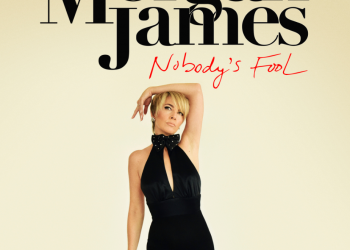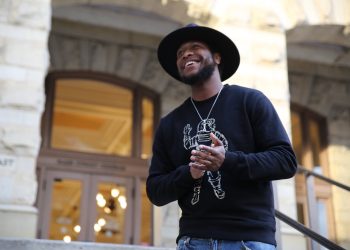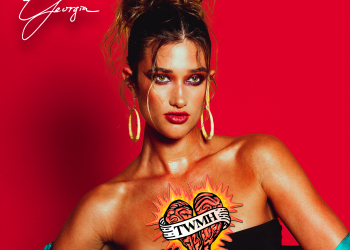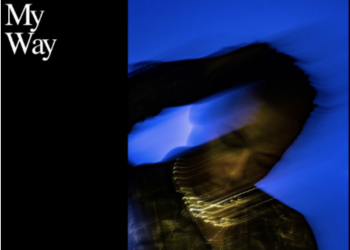New Zealand-born musical recording artist Aaradhna examines what it means to be a woman of color on her fourth studio album Brown Girl. A representation both physically and metaphorically, Brown Girl tackles stereotypes Aaradhna and many other women have faced being brown girls.
The talented songstress recently participated in a Q&A with us about the event that inspired her to write Brown Girl, what being a brown girl means to her, tackling stereotypes, and speaking for those who aren’t given a platform or are too afraid to speak out.
Peep the interview below and purchase Aaradhna’s new LP Brown Girl on iTunes HERE.
What’s your upbringing in music?
My parents are both singers in their native languages. Dad used to sing at a lot of birthday parties and Diwali festivals. He’d bring us along as kids, and we’d also sing along to a lot of Bollywood music. Mum also likes to write Samoan gospel music and shares her songs at church, as well as play country music at home. She always encouraged us to write our own music. I grew up in a musical household.
You describe yourself as having an introverted nature. Why’d you choose to pursue a career in music?
I like to sing. When it comes to music I feel at ease. I get to express how I feel and what’s on my mind through songs. That keeps me sane. Music is my form of communication. I find my confidence through music.
A bit of an obvious answer to the question, but why the title Brown Girl and what does it mean to you to be a brown girl?
I chose “Brown Girl” for the title because I feel the song is very important and represents who I am. Being a brown girl means pride and strength. I’m proud of my cultural background, the traditions I have been accustomed to, proud of my bloodline, my family, the strength from the struggles my parents went through. Pride.
Was there a particular event/opportunity that drove you to focus your album, “On the stereotypes [you] and many other women have faced being brown girls,” or was it a culmination of many things?
It’s a culmination of many things, but I would say one situation that pushed me to start writing Brown Girl was at the New Zealand music Awards back in 2013. My family and my friends were sitting near the back. When I won my first award, my friend heard a guy sitting with his family yelling out “fuck off, back to India!!” and he kept yelling out some B.S. My siblings didn’t hear him, and I’m glad, but my friend could hear him. When I won my second award, he was shouting out some more racist remarks and that’s when my friend told him, “you better shut it, that’s her family over there.” He didn’t care and kept talking shit. I won my third award, and he was getting quiet. I won my fourth, and he left. My friend told me what happened straight after the event and as happy as I was to win a bunch of awards, I was put off of what happened. The fact that his family was quiet and didn’t do anything about it, and him freely yelling out racist shit, really made me angry and hurt after all the years just dealing with similar stuff like that. It was that moment I started to write “Brown Girl.”
Would you say there are differences in stereotypes for brown girls in New Zealand versus, say, the U.S. or other parts of the world?
I think stereotypes are stereotypes. It doesn’t matter where, it will still leave you feeling annoyed, disappointed, angry, and hurt.
Are there any specific stereotypes that you believe “brown girls” get a bad rap for? Do you feel there is a misconception about “brown girls” in today’s society?
Growing up I’ve been made to feel like I am “trouble.” Yes, definitely, with everything happening around the world. It seems like race plays a big part in people’s judgments.
You state that “You’re ready to share where your heart and head are.” Where exactly is that?
My heart and head are with my loved ones and music.
Though your album is titled Brown Girl, could it be described as “breaking down stereotypes for all brown people”?
Yes
Do you feel Brown Girl is particularly important in today’s society based on recent social issues and events?
Most Definitely. I speak for myself and for the unspoken.
![[Interview] Recording Artist Aaradhna Opens Up About What It Means To Be A ‘Brown Girl’](https://singersroom.com/wp-content/uploads/2016/08/Aaradhna-Interview.jpg)







